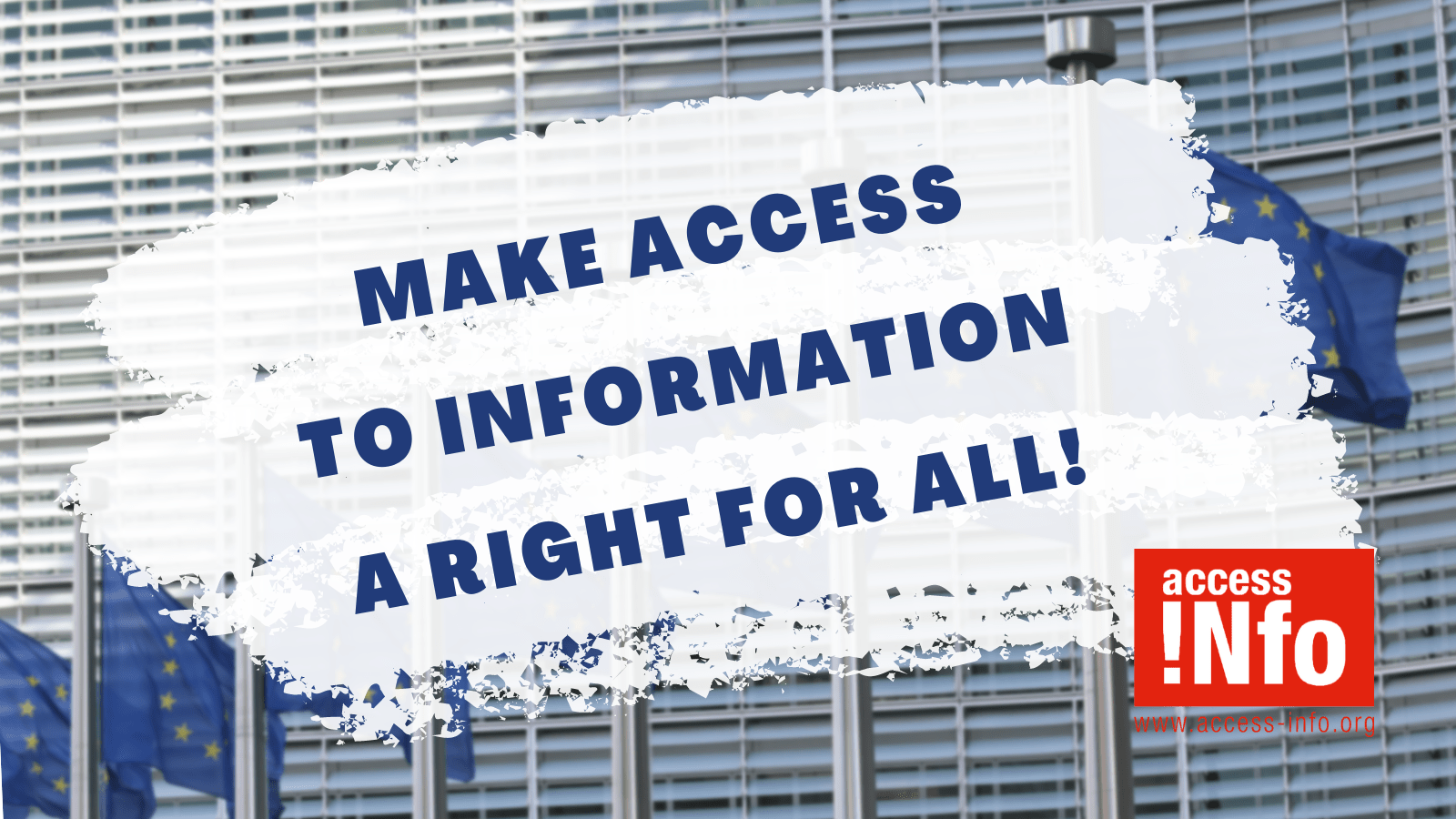28 September 2022 – As we celebrate the International Day for Universal Access to Information, Access Info calls on European Union bodies to fully respect the right to EU documents and ensure that it can be enjoyed by all in practice.
Releasing the key findings of a survey of the websites of 54 EU bodies, Access Info has identified a string of practical obstacles that stand between European citizens and their right to know, including:
- Languages – a right for English speakers only: While nearly three-quarters of EU websites explain the right of access to documents (70%), the majority do so only in English (60%). Just over one quarter (26%) explain the citizen’s right to ask in all 24 EU official languages.
- The right is not fully explained: Of the 70% EU websites that explain the right to access documents, just over one quarter (26%) do not give information on timelines and almost two-thirds (61%) do not give information on the right to appeal.
- Who is asking? While it is normal for a requester to be asked for name and email address when requesting, 36% of the websites also ask for full address or postal code, and 13% ask for a phone number. More extreme examples include the need to provide a copy of your ID (Frontex and the European Aviation Safety Agency), and the need to identify your profession (European Medicines Agency and the European Food Safety Authority).
- Right, what Right? Six (6) bodies’ websites did not give the option to submit access to documents requests: the Computer Emergency Response Team, European School of Administration, European Personnel Selection Office, Agency for the Cooperation of Energy Regulators, European Union Agency for Railways, and European Securities and Market Authority.
These findings come from a longer report to be released in October identifying a full range of obstacles which prevent people across Europe from obtaining information about what the EU is doing for them.
Rachel Hanna, Legal Researcher and Campaigner at Access Info, commented:
“The European Union Treaties recognise a fundamental right to access EU documents. In order to fully implement this right – so that citizens are better informed about the EU – these practical issues surrounding Regulation 1049/2001 must be addressed and should be clarified in an improved regulation.”
Transparency and Accountability in the Digital Age
The current EU access to documents rules date from 2001 and urgently need to be upgraded, both for the digital age, and to be in line with advances that include recognising the right of access to EU documents as a fundamental right, enshrined in the EU treaties since 2009.
Regulation 1049/2001 has not been adapted to reflect these changes. For instance, the definition of a “document” in the EU access rules covers any information in any format, but we are seeing an increasing reluctance to include modern forms of communication, as shown by the recent refusal of the European Commission to consider text messages of Ursula von der Leyen when negotiating covid contracts as documents worth registering.
Helen Darbishire, Executive Director of Access Info Europe, stated:
“In a fast-paced environment, important decisions are often discussed and finalised in other ways, such as through email, text, and phone calls. Full accountability for these decisions means making these communications accessible to the public. The current access regime is outdated and unfit for the 21st century.”
Access Info is calling for reform to bring the EU’s access to documents rules into line with the fundamental right in the EU treaties and in international standards.
Notes on the Right of Access to Information & 28 September
The right of access to information has been recognised globally as a fundamental right by multiple international human rights bodies, including the UN Human Rights Committee, the Inter-American Court of Human Rights and the European Court of Human Rights.
The world’s first ever binding treaty on access to official documents, the Tromsø Convention, came into force on 1 December 2020.
Improvements have also been seen at the national level, with over 130 countries now having access to information laws today, and over 70 countries have constitutional provisions on this right.
The 28 September Right to Know Day was founded by civil society organisations in 2002, and since 2016 has been an official UNESCO day, and a UN official day since 2019, known as the International Day for Universal Access to Information.

